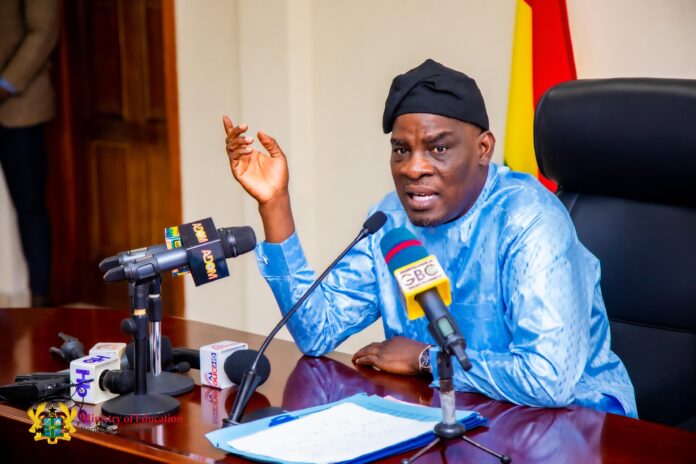Government-sponsored PhD candidates from Ghana studying in the United Kingdom say they are on the verge of expulsion and deportation over unpaid tuition fees and stipends that have been outstanding for up to four years.
In a press statement, the leadership of the Ghanaian PhD Scholars Association in the UK said the crisis has worsened in recent months, with at least ten students already withdrawn or suspended by their universities.
“Roughly ten of our members have been excluded from their studies as a result of unpaid tuition and now await possible deportation notices from the UK Home Office,” the statement read.
According to the group, the prolonged delay in scholarship payments has severely affected their academic progress and living conditions.
They revealed that many students have been evicted from their homes, while others face legal action over unpaid rent. Some have reportedly gone for several months—and in extreme cases, nearly four years—without receiving their government stipends, which range between £1,023 and £1,200 per month.
“For some scholars, no payment has been made since the very beginning of their PhD programmes,” the group lamented.
Currently, about 110 Ghanaian PhD students in the UK are on scholarships funded by the Ghana Scholarships Secretariat (GSS).
Beyond the backlog in tuition fees, the students said 36 members urgently need renewal letters to continue their studies. Without these documents, universities cannot process their re-enrolments or allow them to resume research.
The statement further highlighted the academic and immigration complications arising from the delays.
“Some students have completed their programmes but are unable to graduate. Others attended graduation ceremonies but were denied their certificates because of outstanding fees,” the statement noted.
It added that several scholars who travelled to Ghana for data collection have been refused re-entry into the UK, as their tuition debts have triggered immigration issues with the Home Office.
Although the group acknowledged that the GSS has made some partial payments, they described these efforts as “grossly insufficient.” They estimated that about 30 students have received no contribution toward their 2024/2025 tuition, leaving many locked out of university systems and unable to access academic resources.
According to their calculations, a minimum of £400,000 is required to sustain the scholarship programme through the 2025/2026 academic year.
The scholars also criticised what they described as a lack of transparency and poor administrative management of the scholarship scheme, blaming the crisis on irregular practices by previous officials.
“We recognise the difficulties faced by the current management of the GSS, but students should not have to bear the consequences of past administrative failings,” the statement said.
While expressing frustration, the scholars acknowledged the government’s ongoing attempts to reform the scholarship programme to ensure greater accountability and fairness.
“Our membership includes individuals from diverse professional and political backgrounds,” the statement added. “We have no partisan agenda—our only concern is the survival of our academic pursuits.”
Appealing directly to both the UK High Commissioner and President John Dramani Mahama, the group urged immediate intervention to resolve the crisis.
“We are calling on President Mahama and the UK High Commissioner to urgently address this issue, as has been done in the case of other inherited liabilities,” they pleaded.
The statement concluded with cautious optimism:
“We remain hopeful that our concerns will receive prompt attention and that those in leadership will act swiftly to safeguard our education and future.”
ALSO READ:



